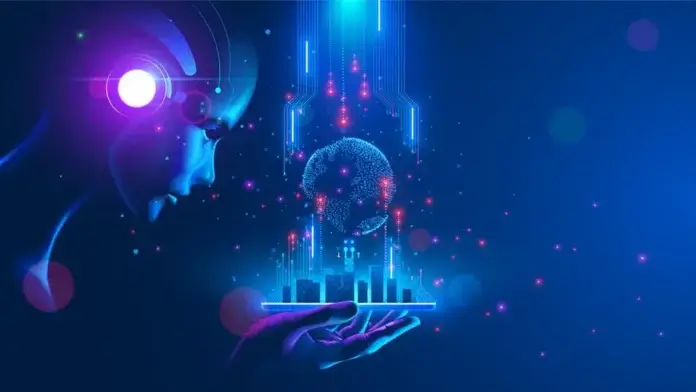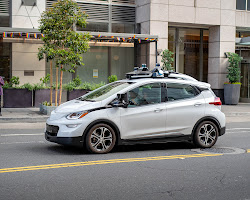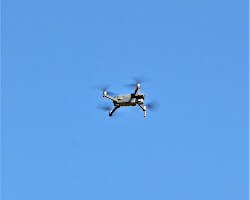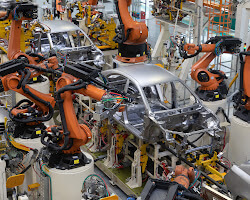Artificial Intelligence (AI) has undeniably become an integral part of our lives, transforming industries, enhancing efficiency, and reshaping the way we interact with technology. As we step into 2024, the AI landscape continues to evolve at an astonishing pace, bringing forth new possibilities and challenges. In this article, we will delve into the top 10 AI trends that are poised to dominate the technological frontier not only in 2024 but also in the years beyond. From advancements in machine learning to ethical considerations, let’s explore the exciting journey that lies ahead for AI.
Table of Contents
1. Autonomous Systems Take Center Stage
Autonomous systems, powered by AI and machine learning algorithms, are set to revolutionize various industries. From self-driving cars to drones and robots, the ability of machines to make independent decisions based on real-time data is opening doors to safer and more efficient operations.
Self-driving cars are one of the most visible examples of autonomous systems. They use a variety of sensors, including cameras, radar, and lidar, to perceive their surroundings and make decisions about how to navigate. Self-driving cars have the potential to revolutionize transportation, making it safer, more efficient, and more accessible.
Other examples of autonomous systems include:
- Drones:
Drones can be used for a variety of purposes, such as delivery, surveillance, and inspection. They are becoming increasingly autonomous, with the ability to fly and navigate without human intervention.
- Robots:
Robots are used in a variety of industries, including manufacturing, healthcare, and logistics. They are becoming increasingly autonomous, with the ability to perform tasks without human assistance.
- Ships:
Ships are being equipped with autonomous systems to improve navigation and safety. These systems can detect obstacles, avoid collisions, and optimize routes.
Autonomous systems are still in their early stages of development, but they have the potential to transform many industries. As these systems become more sophisticated, they will have a profound impact on our lives and the world around us.
2. AI in Healthcare: Personalized Medicine
The healthcare industry is embracing AI to offer personalized treatment plans. AI-driven diagnostic tools can analyze patient data to predict diseases, recommend treatments, and tailor medical approaches based on individual genetic profiles.
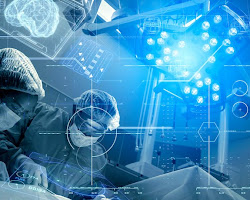 Opens in a new window
Opens in a new window www.med-technews.com
www.med-technews.com
3. Quantum Computing Boosts AI
Quantum computing’s immense processing power has the potential to accelerate AI capabilities. Solving complex problems, optimization tasks, and enhancing machine learning algorithms are some areas where the synergy between quantum computing and AI shines.
 Opens in a new window
Opens in a new window www.nature.com
www.nature.com
4. Ethical AI Takes Center Stage
As AI’s impact grows, so does the importance of ethical considerations. Ensuring transparency, accountability, and fairness in AI systems is critical to avoid biases, protect user privacy, and maintain public trust.
 Opens in a new window
Opens in a new window venturebeat.com
venturebeat.com
5. AI in Education: Personalized Learning
AI is reshaping education by providing personalized learning experiences. Adaptive learning platforms analyze students’ strengths and weaknesses to create tailored curricula, fostering more effective and engaging learning journeys.
 Opens in a new window
Opens in a new window www.analyticsinsight.net
www.analyticsinsight.net
6. Natural Language Processing Evolves
Advancements in Natural Language Processing (NLP) enable AI to understand and communicate with humans more naturally. Conversational AI chatbots, virtual assistants, and language translation tools are becoming increasingly sophisticated.
 Opens in a new window
Opens in a new window www.haptik.ai
www.haptik.ai
7. AI-Enhanced Creativity
AI is becoming a creative collaborator, aiding in content creation, design, music composition, and even art generation. The fusion of human creativity with AI’s data-driven insights leads to innovative and compelling outcomes.
 Opens in a new window
Opens in a new window www.nytimes.com
www.nytimes.com
8. AI in Agriculture: Precision Farming
AI-driven precision farming optimizes crop management, resource allocation, and pest control. Sensors, drones, and AI analytics provide farmers with real-time insights, leading to increased productivity and sustainable practices.
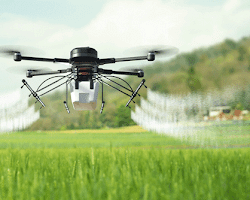 Opens in a new window
Opens in a new window www.techcircle.in
www.techcircle.in
9. AI-Powered Cyber-security
As cyber threats become more sophisticated, AI is stepping in to enhance cybersecurity. Machine learning algorithms can swiftly detect anomalies, identify potential breaches, and adapt to evolving attack methods.
 Opens in a new window
Opens in a new window www.scmp.com
www.scmp.com
10. AI in Finance: Enhanced Decision-Making
AI’s predictive analytics and data-driven insights are transforming financial services. From fraud detection and risk assessment to portfolio management and customer service, AI is empowering smarter financial decisions.
 Opens in a new window
Opens in a new window www.coursera.org
www.coursera.org
The challenges and opportunities associated with autonomous systems:
Challenges
- Safety: One of the biggest challenges facing autonomous systems is ensuring their safety. These systems must be able to operate safely in a variety of environments and conditions, and they must be able to handle unexpected events.
- Security: Autonomous systems are also vulnerable to cyberattacks. These systems must be designed to be secure and to protect themselves from unauthorized access or tampering.
- Privacy: Autonomous systems collect a lot of data about their surroundings and the people they interact with. This data must be protected to ensure the privacy of individuals.
- Regulation: There is currently no clear regulatory framework for autonomous systems. This could slow down the development and deployment of these systems.
Opportunities
- Autonomous systems have the potential to make our lives safer, more efficient, and more convenient. For example, self-driving cars could reduce traffic accidents, drones could deliver packages more quickly, and robots could perform dangerous or repetitive tasks.
- Autonomous systems could also create new jobs and businesses. For example, there will be a need for people to develop, test, and maintain these systems.
- Autonomous systems could also help us to address some of the world’s biggest challenges, such as climate change and poverty. For example, autonomous systems could be used to monitor and protect natural resources, or to deliver food and medical supplies to remote areas.
Overall, autonomous systems have the potential to be a powerful force for good in the world. However, it is important to address the challenges associated with these systems in order to ensure their safe and responsible development.
“The future of AI is a landscape of boundless innovation, ethical considerations, and transformative potential.”
Daoox
The ways that we can ensure the safe and responsible development of autonomous systems:
- Invest in research and development: We need to invest in research and development to improve the safety and security of autonomous systems. This includes developing new algorithms and technologies that can make these systems more robust and resilient.
- Create clear regulations: We need to create clear regulations for the development and deployment of autonomous systems. These regulations should ensure that these systems are safe and secure, and that they protect the privacy of individuals.
- Educate the public: We need to educate the public about the potential benefits and risks of autonomous systems. This will help to create a more informed public that can participate in the development of these systems.
- Develop ethical guidelines: We need to develop ethical guidelines for the development and use of autonomous systems. These guidelines should help to ensure that these systems are used in a responsible and ethical manner.
By taking these steps, we can help to ensure that autonomous systems are developed and used in a way that benefits society.
Conclusion
The future of AI is a landscape of boundless innovation, ethical considerations, and transformative potential. As we journey into 2024 and beyond, the evolution of AI will shape industries, redefine possibilities, and influence the very fabric of our society. Embracing these trends and understanding their implications will empower us to harness the full potential of AI while navigating the challenges it brings. In this dynamic technological frontier, the future of AI holds promise, and it is up to us to drive its responsible and impactful integration.



